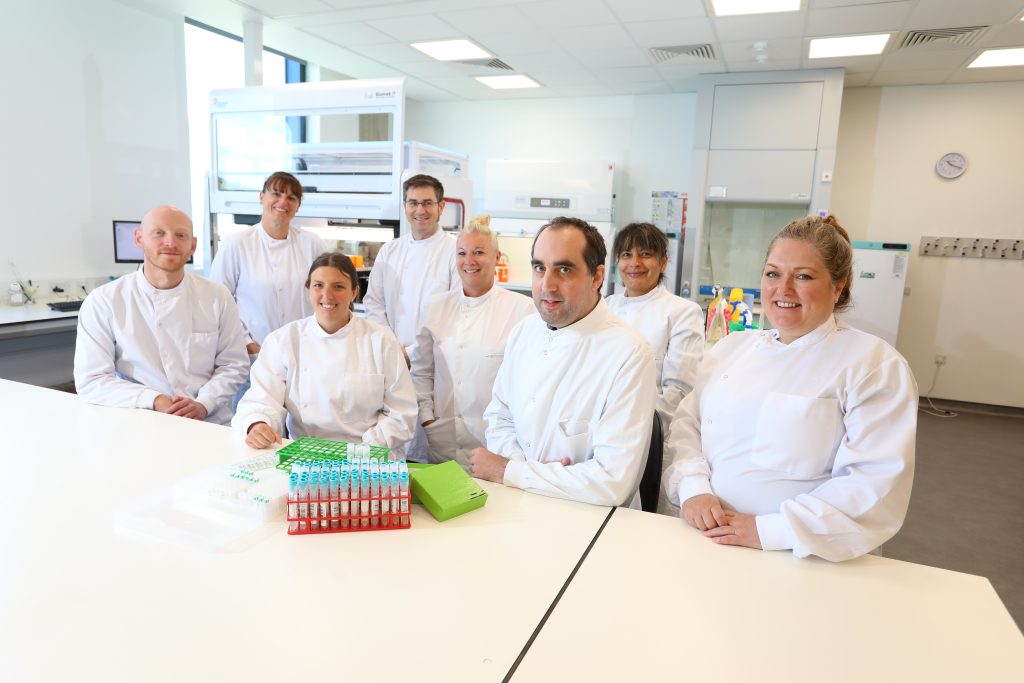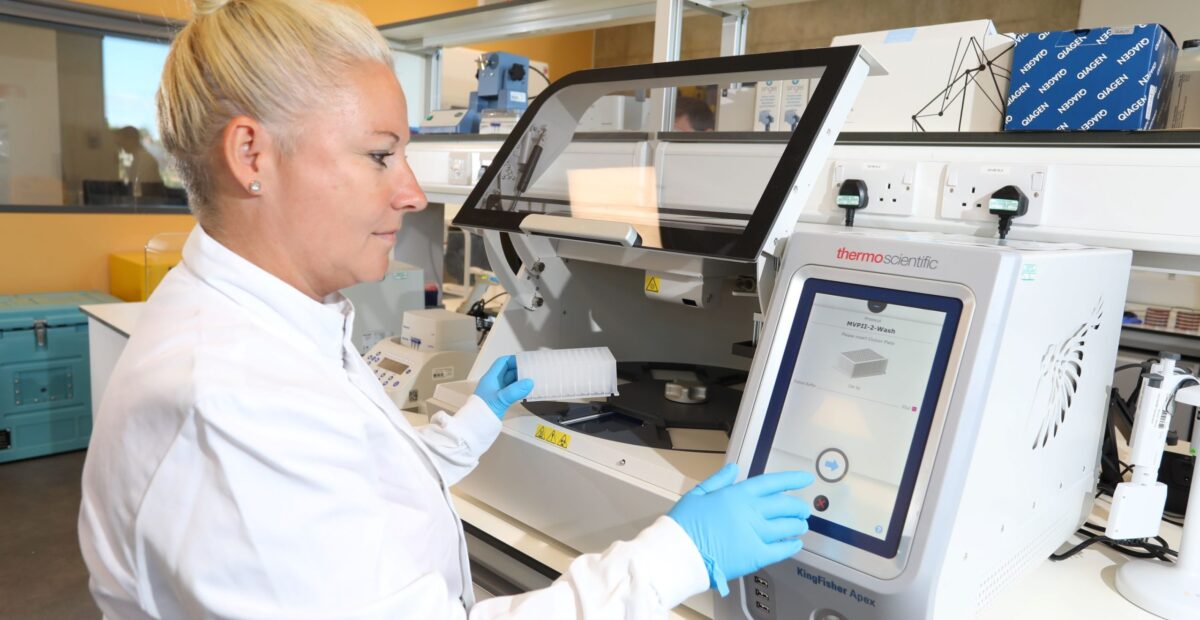Dr John Tyson, head of the North East Innovation Lab, part of Newcastle Hospitals, talks about ‘everyday’ innovation and the role it plays in developing the next generation of diagnostics.
When people hear the word innovation, a high-profile new technology, something ‘big bang’ or an invention which attracts a big fanfare often spring to mind.
But really, it’s more often about the ideas and incremental improvements that form important building blocks for positive change. You often have to consider lots of pieces of the puzzle to innovate. It might be that the newer product or service looks very similar from the outside but innovation has made it more reliable, cheaper, faster, or available to people who didn’t have it before.
You can’t predict where innovative benefits might come from, so it’s important to look at a broad range of things.
At the North East Innovation lab, we’re open to who we support and enjoy talking with all potential new clients to discuss ideas and developments, whatever stage they’re at. Our open-door policy is really important to us and we give every approach and project the same level of consideration, whether it’s a small start-up or a large international business.
As a dedicated team, with a range of expertise in methodology, immunology, virology and research, we’re flexible in terms of the projects we can take on. It’s an exciting challenge to think about how we can provide a tailored service for each client and we are able to react quickly to enquiries and specific requests.
We know from conversations with our industry partners that one of the key challenges diagnostic developers can face is obtaining clinical samples to provide the quality of evidence required to support regulatory submissions.
Access to characterised samples is a key aspect of developing diagnostics and our lab has a biobank which holds around 20,000 carefully curated samples, including blood, serum and saliva, with associated detailed metadata, offering clients access to the clinical samples needed to test their products and devices. We can also collect samples prospectively.

Our well-established set of services includes independent evaluations for new and emerging diagnostics; methodology and protocol development; and bespoke sample collection.
At the moment, we’re looking to expand our services to meet the needs of the diagnostic industry, to provide tailored and responsive support for a wider range of innovative products throughout the development life cycle.
If there is a service that a client thinks we could be providing they can come and ask us, tell us what they need and we’ll do all we can.
I’m motivated to provide developers with the services they need, to support all sorts of innovation and creative ideas, which will then lead to wider availability and uptake of more effective and accessible diagnostics for people.
We can conduct repeated testing at key stages, as a new product goes through its development lifecycle, to look at whether something works or not while it’s in progress. No one likes things to fail but sometimes finding out earlier when things aren’t working properly is most helpful.
Successful innovators need to be agile, to quickly decide whether they need to continue, or change direction, for example by trying a new supplier or stopping because the concept wasn’t working.
The sooner innovators speak to us or our NHS colleagues about what unmet needs there are, the better. That way, we can provide input and expertise from a healthcare perspective, which can inform the process and can save getting to the end having made things too expensive or missed out a key need, eg. identification of a different pathogen is required.
We have the expertise to look at how a device needs to perform to be better than the gold standard and how useable something needs to be
Everyone benefits through refining product development this way, as healthcare gets the test it needs and the developer has been able to find a solution to a real problem.
Since we launched in January 2021 to evaluate new Covid tests, we’ve worked on so much that could be beneficial for identifying other health threats. For example, testing devices which will provide rapid identification of disease and viruses, including hepatitis, HIV, tropical disease, influenza and cancer.
We are also looking at more ‘near patient testing’, which includes things such as lateral flow tests, devices that have the accuracy of a PCR (lab-based) test but with the speed of a lateral flow, using much smaller, self-contained portable equipment.
Covid-19 has put the importance of testing on the radar for more people and made it tangible, which is a good thing. I think people now understand the importance of testing, the need for not only accuracy but usability too.
Diagnostics and testing have a huge role to play in helping people to manage their own health and to make more informed decisions, as well as assisting health services to provide targeted treatment and support.
I think the pandemic increased tolerance for change, so if we can maintain quicker ways of trialling and implementing new diagnostics, we could see more pre-emptive testing playing a greater role in communities and homes, not just the NHS.
Find out more about the work if the innovation lab here.

